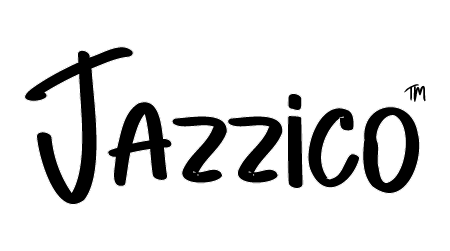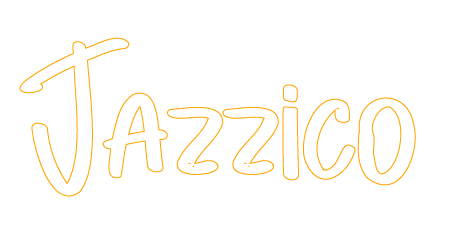Introduction
In the digital age, where technology dominates, the traditional notebook might seem outdated. However, for writers and journalists, notebooks are still an essential tool for capturing ideas, taking notes, and organizing thoughts. In this article, we will explore some creative and practical notebook hacks that will enhance productivity, boost creativity, and streamline the writing process.
1. The Perfect Notebook Choice
Before diving into the hacks, it's crucial to choose the right notebook that suits your needs. Opt for a notebook that has quality paper, a durable cover, and a size that fits comfortably in your hand or bag. Whether you prefer a classic Moleskine or a trendy bullet journal, finding the perfect notebook will set the foundation for an enjoyable writing experience.
2. Index and Page Numbers
One of the most useful hacks for writers and journalists is creating an index and numbering the pages. As you fill the pages with notes, ideas, and content, refer back to the index and jot down the corresponding page numbers. This way, you can easily find specific information later without flipping through countless pages.
3. Color-Coding Categories
Color-coding your notebook can add a fun and functional element to your writing process. Assign different colors to various categories, such as personal thoughts, research, interviews, or to-do lists. This hack will help you quickly identify and organize information, making it easier to find what you need when you need it.
4. Sticky Notes for Flexibility
Sticky notes are a writer's best friend. These little wonders allow you to jot down ideas, move them around, and stick them to different pages. Use them to mark important sections, create temporary outlines, or simply as a reminder for tasks and deadlines.
5. Mind Maps for Brainstorming
When you're facing writer's block or need to brainstorm ideas for an article, mind maps can be a game-changer. Start with a central topic or keyword and create branches with related concepts. This visual representation can stimulate creativity and help you see connections you might have otherwise missed.
6. The Back Pocket Hack
Attach an envelope or folder to the back cover of your notebook. This nifty hack allows you to store loose papers, business cards, or any other important documents related to your writing projects. No more rummaging through your bag to find that elusive contact information.
7. Daily Writing Prompts
Boost your writing skills and creativity with daily writing prompts. Set aside a section in your notebook to respond to these prompts regularly. This practice will keep your writing muscles active and might even lead to unexpected story ideas or insightful reflections.
8. Analog Inspiration Board
In a digital world, having an analog inspiration board can be refreshing. Use a few pages in your notebook to collect images, quotes, or articles that inspire you. Whenever you feel stuck or uninspired, flip through this section to rekindle your creative fire.
9. Track Your Progress
Create a section in your notebook to track your writing progress. Set writing goals, note down word counts, or keep a record of completed articles or stories. This practice will not only keep you motivated but also provide a sense of accomplishment when you see how much you've achieved.
10. Doodles and Sketches
Don't limit your notebook to just words; let your creativity flow through doodles and sketches. Whether you're an artist or not, sketching can help visualize ideas and concepts, providing a fresh perspective on your writing projects.
11. Bookmark Important Pages
Use colorful paperclips or washi tapes to bookmark essential pages in your notebook. This hack will save time and frustration when searching for specific notes or references.
12. Reflective Journaling
In addition to your writing work, use your notebook as a tool for reflective journaling. Write about your writing journey, personal growth, and the lessons you've learned. This practice can be therapeutic and contribute to your overall well-being as a writer or journalist.
13. Create a Writer's Toolbox
Devote a few pages at the end of your notebook as a "Writer's Toolbox." Fill it with writing tips, grammar rules, or inspirational quotes from your favorite authors. This personalized toolkit will come in handy whenever you need a dose of motivation or guidance.
14. Set Up a Book Log
If you're an avid reader, create a book log in your notebook. Document the books you've read, jot down your thoughts, and use it as a reference when you're writing book reviews or seeking inspiration from other authors' styles.
15. Conclusion
In conclusion, notebooks are more than just paper and ink; they are vessels for ideas, creativity, and personal growth. With these notebook hacks, writers and journalists can transform their notebooks into powerful tools that enhance productivity and nurture their craft.
FAQs
-
Can I use a digital notebook instead? While digital notebooks offer convenience, the tactile experience of writing on paper can spark creativity and improve retention.
-
What if I make mistakes in my notebook? Embrace mistakes; they are part of the creative process. You can cross them out or use them as a springboard for new ideas.
-
How do I avoid losing my notebook? Personalize your notebook with contact information or use a dedicated spot at home or work to keep it safe.
-
Can I use these hacks for any type of writing? Absolutely! Whether you're a fiction writer, journalist, or poet, these hacks can elevate your writing experience.
-
How often should I review my notebook? Make it a habit to review and organize your notebook regularly, preferably at the end of each week or month.





Leave a comment
All comments are moderated before being published.
This site is protected by hCaptcha and the hCaptcha Privacy Policy and Terms of Service apply.